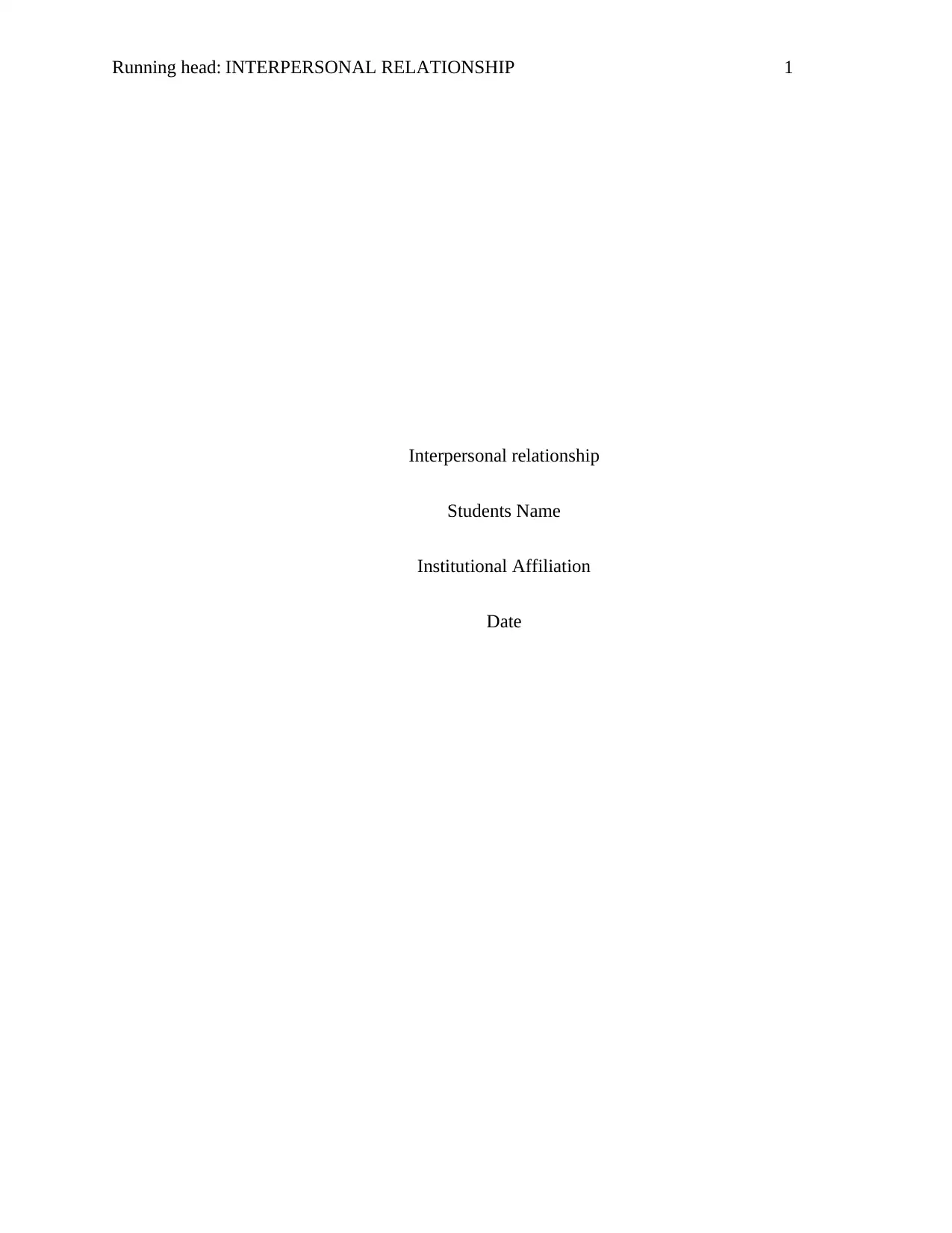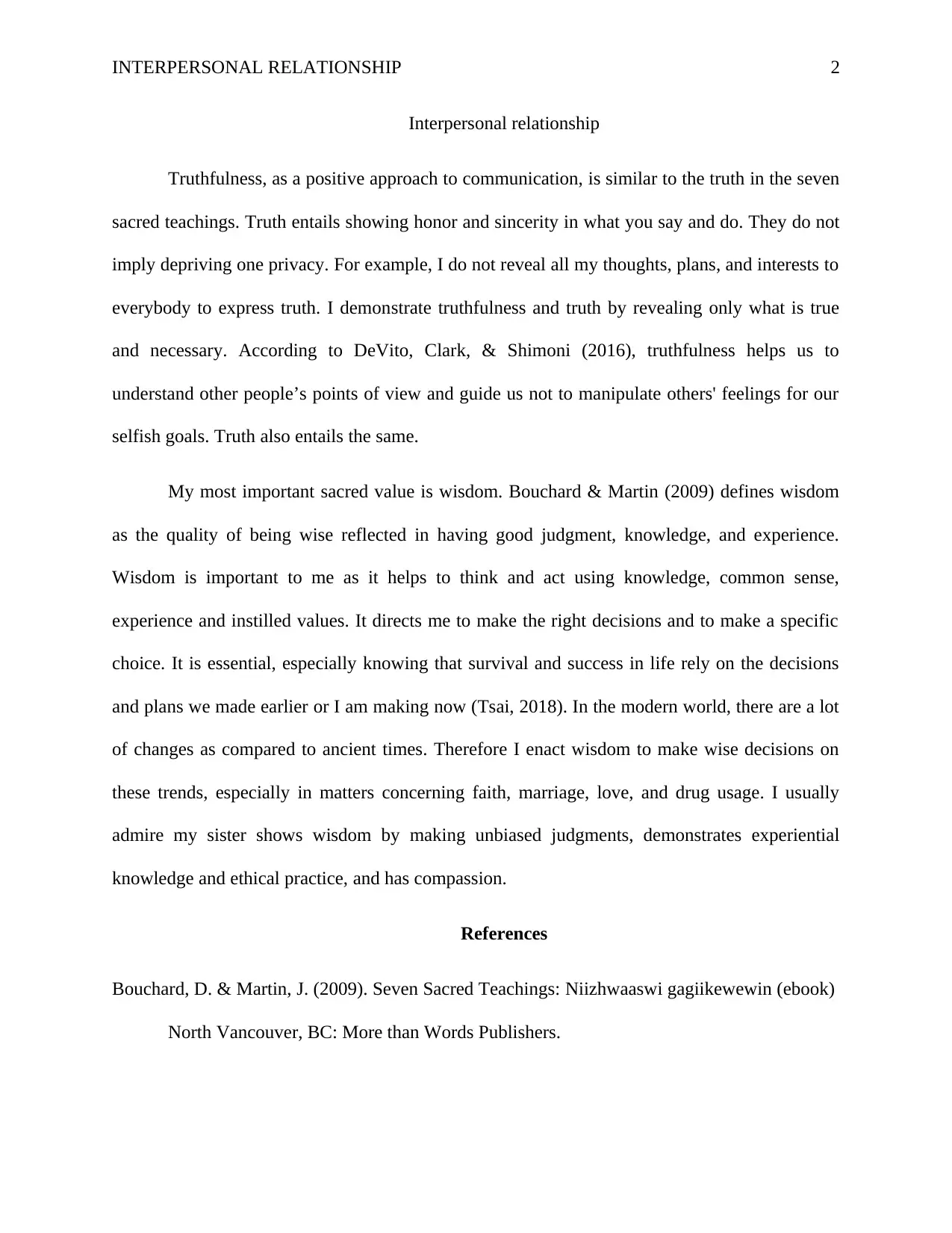Interpersonal Relationship: An Examination of Truthfulness and Wisdom
VerifiedAdded on 2022/08/23
|3
|391
|18
Homework Assignment
AI Summary
This assignment delves into the significance of truthfulness and wisdom within interpersonal relationships, drawing parallels to the Seven Sacred Teachings. It defines truthfulness as demonstrating sincerity and honesty in communication, emphasizing the importance of understanding others' perspectives and avoiding manipulation. The assignment also highlights wisdom as a crucial value, encompassing good judgment, knowledge, and experience, which guides decision-making in various aspects of life, including faith, marriage, and contemporary issues. The author reflects on how they enact wisdom and admires the wisdom demonstrated by their sister. References to relevant literature such as DeVito, Clark, & Shimoni (2016) and Bouchard & Martin (2009) support the discussion. The assignment aims to provide a comprehensive understanding of these values and their impact on personal and social interactions.
1 out of 3




![[object Object]](/_next/static/media/star-bottom.7253800d.svg)